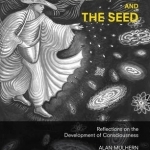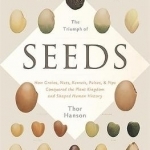
Essential Oils and Nanotechnology for Treatment of Microbial Diseases
Mahendra Rai, Susana Zacchino and Marcos Derita
Book
There has been emergence of multidrug resistance problem all over the world due to overuse or...

Cuba Marco Polo Pocket Guide
Book
Fully revised and updated for 2016. Now with new Discovery Tours chapter. Marco Polo Cuba: the...

The Sower and the Seed: Reflections on the Development of Consciousness
Alan Mulhern and Lindsey C. Harris
Book
The Sower and the Seed explores the origins of consciousness from a mytho-psychological angle. The...

The Triumph of Seeds: How Grains, Nuts, Kernels, Pulses, and Pips, Conquered the Plant Kingdom and Shaped Human History
Book
Winner of the 2016 PNBA Book Award A finalist for the 2016 AAAS/Subaru SB&F Prize for Excellence in...

Terminator Genisys: Guardian
Games and Entertainment
App
The year is 2028 and humanity is on the brink of extinction. Help John Connor in the war to save...

Deep-Breathing Routine for Lean and Flat Stomach
Health & Fitness and Sports
App
Over 312,000 downloads worldwide and counting. Join the belly fat revolution and download today ...

Bodyweight Training: You Are Your Own Gym
Health & Fitness and Reference
App
Get into the best shape of your life without stepping foot into a gym! Exercise at home using the...

Abs Core Workout Fat Free Body
Health & Fitness and Sports
App
√ Over 320,000 downloads worldwide and counting. Join the belly fat revolution and download today...

Telegram Messenger
Communication, Productivity and Social Networking
App
Pure instant messaging — simple, fast, secure, and synced across all your devices. Over 100...
Social networking stickers communication texting

Instattoo - Tattoo Designer
Entertainment and Lifestyle
App
INTRODUCING INSTATTOO, THE WORLD'S FIRST TATTOO GENERATOR • Join The Revolution In The Tattoo...